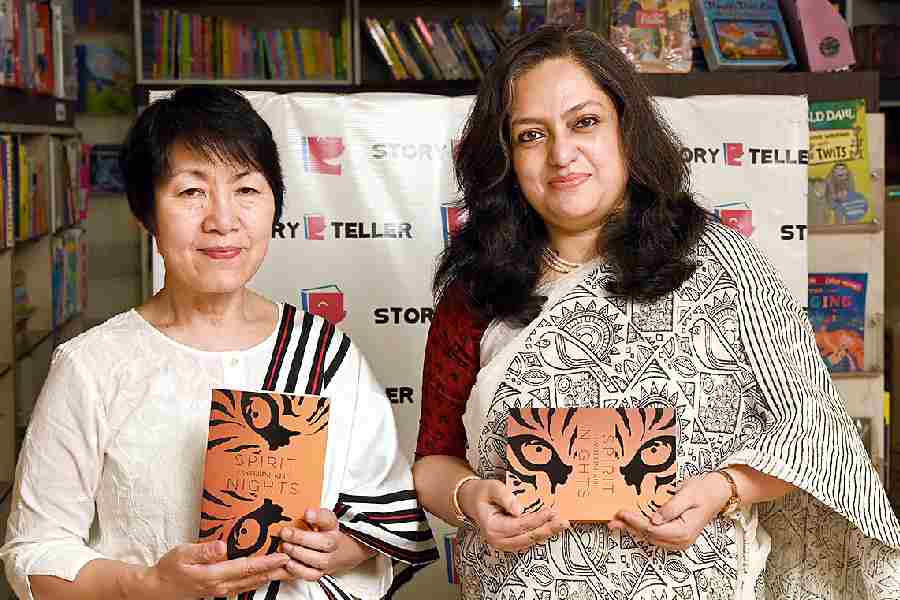Easterine Kire’s works have always been a gateway to Nagaland. The soft-spoken author and poet whose calm demeanour is almost infectious, has written stories about her land of birth in multiple books including Walking the Roadless Road: Exploring the Tribes of Nagaland, A Naga Village Remembered, A Terrible Matriarchy and others. The latest one, Spirit Nights, centres around a folktale and the warm bonding between Tola and her grandson, Namu. Norway-based Kire, whose early literary influences were Nigerian writers and who like working in a free and boundaryless space, was in the city to launch her book at Storyteller bookstore. She was in conversation with author Amrita Mukherjee on the occasion of the launch. Excerpts from a chat with Kire...
The title of the book brings a confluence of ideas to mind about themes like liberation, spirits etc. Tell us more about it.
It was a working title at first but my publisher liked it so we eventually used it. It’s about a period when a sudden darkness comes in the middle of the day. The village has already been informed about it in prophecies but when it actually happens people are caught by surprise. So, the book is about how a particular community tries to deal with the darkness and tries to deliver themselves. It’s got different layers including spiritual and the physical dilemma of dealing with it and living in darkness for 24 hours. I found the account of darkness in other Naga tribes as well and it fired my imagination. So I used the folk tale as a seed and then with my creative imagination built the story.
The lines between folk tales and reality is a blurred one. What is the case in this folk tale?
It is based on a folk tale, yes, but if you just say that and leave it then you primitivise it. We should not ignore the creative minds and how they use their creative imagination and use folk tales as seeds.
You must have grown up with many folk tales in Nagaland. Can you share one that has influenced you?
Folk tales are not just storytelling but there are so many levels to it. I remember my grandmother telling me stories that had a moral underlining. In those days when there was no school, that’s how moral lessons were passed on to children, that’s how the community grew up and learned to avoid extreme actions. I can’t pinpoint one because we listened to a lot of tales.
What was the starting point of Spirit Nights?
About six-seven years ago I had collected accounts from different tribes on this folk tale but I was writing a non-fiction book back then so I didn’t take it up immediately. Eventually, I brought all the narratives together from tribes that were geographically distant from each other.
Does it generally take this long for you to write a book?
Some take long while others don’t take much time. This book took longer but I am never in a hurry to finish a book. I always tell young writers not to hurry. They think one draft is enough. You have to let it set and then go back again after six months. It’s like fine wine, the longer you keep the more it matures and gets flavours.
You represent Nagaland in your writing. Do you consider it a responsibility of any sort?
I don’t think of myself in that light. We are always defined as the marginalised but we don’t agree with that description and we don’t want to be part of the mainstream because we are perfectly happy and we are excelling where we are. If you put us in the mainstream we won’t fit in because our centre is here and the centre shouldn’t be a static idea but a fluid one. We resist these narratives.
You also write poetries. What do you enjoy more?
I don’t write poetry for money, it’s something for the soul. I do write non-poetry genres but I need my poetry breaks with a walk in the woods and things like that. I have a collection of poems that a friend of mine has convinced me to publish but I am not in any hurry.
What are you working on next?
I am working on a historical family saga of a baroness with the Russian Revolution as the backdrop and then spilling into the World Wars. I love writing historical fiction because there are no boundaries here.
